A common practice in the hospitality industry, upselling involves persuading customers to purchase additional or more expensive products or services. While an important part of any revenue management strategy, upselling when done well can also improve customer satisfaction by enhancing their experience. This requires the study and consideration of your customer demographics; a couples spa package marketing during a large business conference is unlikely to get much traction, whereas a quick de-stress shoulder massage might.
In addition to upselling the right products and services, using the right techniques is important for success. Here are some common ones:
Personalisation: Personalisation involves tailoring products or services to meet the individual needs of the customer. For example, a hotel may offer personalised room amenities or restaurant recommendations based on the customer's preferences.Suggestive selling: Suggestive selling involves suggesting additional products or services that complement or enhance the customer's purchase. For example, a waiter may suggest a bottle of wine to complement a customer’s meal.
Product bundling: Product bundling involves offering a combination of products or services at a discounted price. A hotel may offer a package that includes breakfast and a spa treatment, while a tour company may offer a special price for booking multiple activities.
Add-ons and upgrades: Add-ons and upgrades involve offering customers the option to purchase additional services or products. For example, a car rental company may offer customers the option to upgrade to a luxury vehicle or purchase additional insurance coverage.
Limited-time offers: Limited-time offers involve offering discounts or promotions that are only available for a limited time. This creates a sense of urgency and encourages customers to make a purchase before the offer expires.
Loyalty programs: Loyalty programs involve offering rewards or discounts to customers who make repeat purchases. This not only encourages customers to make additional purchases but also helps build customer loyalty.
Not everyone in customer service positions are comfortable selling. Sales training can help to build employee confidence, while incentive programs can encourage them to step outside their comfort zones and reward them for their contributions. Beyond employee-driven upselling, however, technology can be a useful tool to both create extra revenue and automate some processes.
Some possibilities for boosting upsells through the use of technology are:
Customer communication: Text messages and emails sent at key moments can both enhance customer satisfaction and offer add-ons and services. Consider pre-arrival welcome messages which include a chance to upgrade at a special price or a satisfaction check mid-stay at a hotel with offers to assist with laundry or activities. Post-experience, periodically going out to past customers and loyalty club members with offers and information can help to drive future bookings.Automation: Software programs can automate these communications, and many can integrate with your internal systems to facilitate both ease of use and personalisation. Remember, however, that it is important that your offers are carefully curated to your customer demographics so that they are relevant and create desire; the alternative is that they will be at best immediately dismissed and at worst deemed an annoyance which may drive the customer away.
Self-driven purchasing: Many people are more likely to spend more when the purchase is self-driven as opposed to through an agent. Having add-ons and upgrades available as part of your booking engine is an effective way to generate incremental revenue, as is the use of chatbots which can both answer basic questions and facilitate sales.
Finally, in addition to upselling, cross-selling is a great way to increase revenue as well as potentially reach customers you would not have otherwise had. Where upselling focuses on your own product, cross-selling is the promotion of the services of other businesses. Building these partnerships – between a hotel and a tour company for example, or an airline and a car rental company – can be of great benefit to both businesses as well as further enhance the customer experience.
By using upselling and cross-selling techniques, hospitality businesses can both increase their revenue and improve customer satisfaction. It is important, however, to use these techniques ethically and not to pressure customers into making purchases they do not want or cannot afford. Remember to monitor the results of your offers, as well as differences that may arise due to timing and techniques, and to make adjustments accordingly to get the most out of your program.

